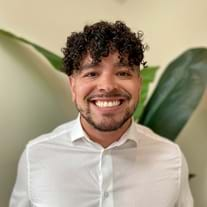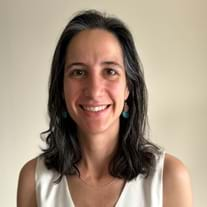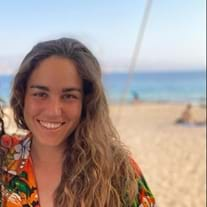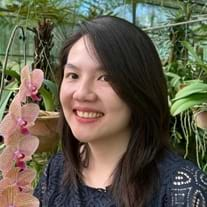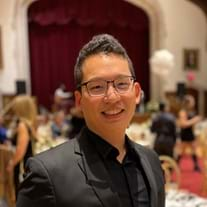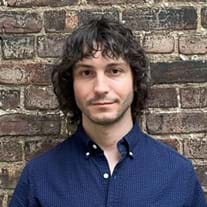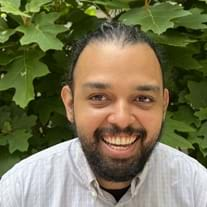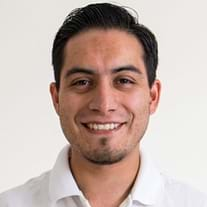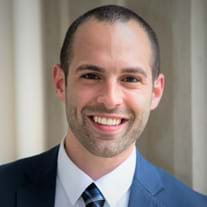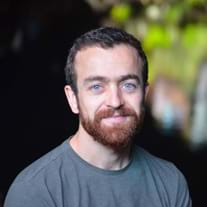The Leon Levy Scholarships in Neuroscience (LLSN) aim to promote groundbreaking neuroscience research in the five boroughs of New York City. The scholarships support the most innovative young researchers at a critical stage of their careers—their postdoctoral research—as they develop the new ideas and directions that will help establish them as independent neuroscientists.
The Scholarships seek to support exceptional young researchers as they pursue innovative investigations in neuroscience and advance their careers toward independent research by:
1. Cultivating excellence and innovation in a diverse neuroscience workforce and supporting postdoctoral Scholars, from all backgrounds, in preparing for a scientific career in the face of increasing competition.
2. Providing enhanced research autonomy to promote impactful scientific research.
3. Helping Scholars to develop wider professional skills such as writing grants and papers, project and budget management, promoting neuroethics, and enhanced community engagement.
4. Building and maintaining an engaged Leon Levy Scholar Alumni community to enhance collaboration and partnerships, encourage mentorship and networking, foster data sharing, and advance team science.
Applicants must be employed by an eligible institution (see below) in New York City.
Which institutions are eligible?
Applicants must be employed by one of the institutions listed below at the time the Scholarship begins, and should have the support of their proposed Research Advisor at the time of application. Institutions not listed here may contact leonlevy@nyas.org to request inclusion on the list of eligible employing institutions.
- Adelphi University
- Albert Einstein College of Medicine
- Barnard College
- City College of New York
- CUNY Brooklyn College
- CUNY College of Staten Island
- CUNY Graduate Center
- CUNY Hunter College
- CUNY Lehman College
- CUNY School of Medicine
- CUNY Queens College
- Columbia University
- Columbia University Irving Medical Center
- Cooper Union
- Cornell Tech
- The Feinstein Institute for Medical Research
- Flatiron Institute
- Fordham University
- Icahn School of Medicine at Mount Sinai
- Long Island University
- Memorial Sloan Kettering Cancer Center
- New York Blood Center
- New York University
- NYU Langone Health
- Pace University
- The Rockefeller University
- SUNY Downstate Medical Center
- Weill Cornell Medicine
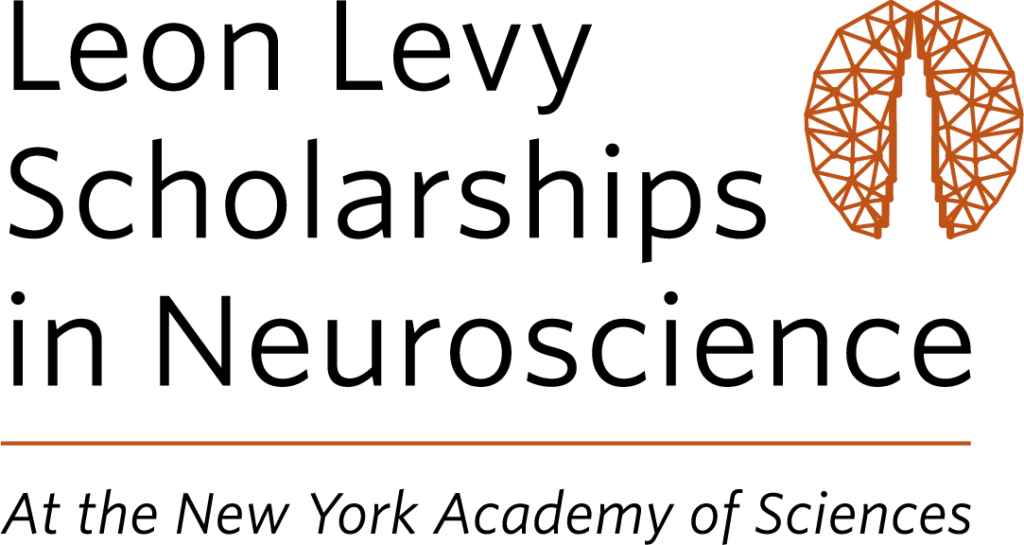
Important Dates
The nomination period for the Leon Levy Scholarships in Neuroscience will open on October 4, 2023. All materials must be submitted by December 13, 2023. Scholarships for the 2024 cohort of Scholars will run from September 1, 2024 to August 31, 2027.
- Applications OPEN: October 4, 2023
- Applications CLOSE: December 13, 2023
- Leon Levy Scholarships period begins: September 1, 2024
Scientific Advisory Board
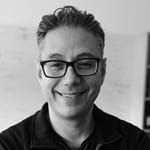
Princeton University
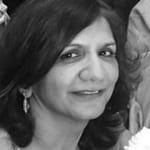
University of Pennsylvania
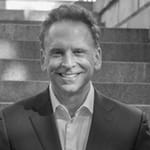
Harvard Medical School, Massachusetts General Hospital
Program Guidelines
Eligibility
By the time of appointment on September 1, 2024, the applicant must:
- Hold a doctoral degree (PhD, DPhil, MD, DDS, DVM, etc.)
- Hold a full-time postdoctoral position at an eligible institution (see FAQs), or an institution that has obtained eligibility prior to the closing of the application period, in one of New York City’s five boroughs
- Possess no more than three (3) years* of cumulative postdoctoral experience
- Conduct research in Neuroscience or one of its sub-disciplines while they hold the Leon Levy Scholarships
- Be able to meet at least one of the following designated criteria at the time of appointment: be a U.S. citizen, U.S. national, or U.S. permanent resident (holder of a Permanent Resident Card); holder of J-1 Research Scholar status or an H-1B Temporary Employee Status visa valid for the full tenure of the Scholarship; an individual granted deferred action status under the Deferred Action for Childhood Arrivals Program; Indigenous individual exercising rights associated with the Jay Treaty of 1794; Individual granted Temporary Protected Status; Asylee; or Refugee. Conditional Visas will be considered.
*Exceptions to this time limit will be considered upon a detailed written submission from the applicant received by the New York Academy of Sciences by Friday, November 17, 2023. For more information, please contact us at leonlevy@nyas.org prior to starting your application. We strongly encourage candidates requiring this exception to contact us as early as possible during the application period.
There is no upper limit on the number of applicants per institution or per laboratory. Previous recipients of a Leon Levy Fellowship are not eligible to apply.
Applications by Underrepresented Populations in STEM
In spite of tremendous advancements in scientific research, information, and education, opportunities are still not equally available to all. Women, persons with disabilities, and individuals identifying as Black, Indigenous, or People of Color (BIPOC) and other groups continue to be underrepresented in STEM fields1,2. As such, the Leon Levy Scholarships in Neuroscience Program strongly encourages applications from individuals within these demographic categories.
1Expanding Underrepresented Minority Participation: America’s Science and Technology Talent at the Crossroads. Washington, DC: The National Academies Press. https://doi.org/10.17226/12984
2Pew Research Center, January 2018. “Women and Men in STEM Often at Odds Over Workplace Equity”
Application Instructions
Application Form
Required information includes the applicant’s name, title, terminal degree, email address, phone number, and sub-disciplinary category within the field of neuroscience, as well as the name, title, and contact information of the applicant’s proposed Research Advisor (i.e. Principal Investigator (P.I.), the leader of the laboratory in which the applicant is/will be employed and perform the proposed research), the name and contact information for three potential mentors, and the start date of the applicant’s first postdoctoral position.
Disciplinary Categories
1. Cellular & Molecular Neuroscience
2. Systems Neuroscience
3. Cognitive & Behavioral Neuroscience
4. Computational Neuroscience
5. Translational & Clinical Neuroscience
6. Other (applicant will be asked to provide brief description)
Curriculum Vitae
Applicants are required to submit a CV that includes:
- Applicant name, current institution(s), and position title
- Education and training, including doctoral and prior postdoctoral training, with names of previous research advisor(s)/mentor(s)
- Employment history
- Honors and awards
- Peer-reviewed publications from their entire research career
- Patents and patent applications, if applicable
- Research grants where the applicant is named as PI or Co-I (NSF fellowship or NIH NRSA, training supplements, foundation grants, etc.)
- Scientific leadership (e.g. any significant roles in the greater academic community, including major editorial responsibilities, service on external committees, conference organization, technology licensing or company start-up, public outreach activities, and institutional administrative responsibilities such as departmental or student committee)
- Invited talks and lectures, if applicable
Research Proposal
The Research Proposal (maximum 1400 words, excluding references) should be accessible to another scientist working in any sub-field of neuroscience and include:
- Background & Significance
Provide the rationale for the proposed research and explain any terms or information that may not be obvious to a neuroscientist outside of the applicant’s sub-field. - Aims
Describe the main goals of the proposed research project and a tentative timetable by which the applicant expects to meet those goals. The Aims should be ambitious but achievable. We are particularly interested in innovative proposals that have the potential to break new ground. - Research Plan
Applicants must present a clearly articulated plan of study or research. This should clearly link to the identified Aims and be achievable within three years. If any specialized equipment, reagents, etc. are required for the Research Plan, indicate if the applicant has access and if not, how and when that will be obtained. - Preliminary Results (not required)
Describe any preliminary work and results regarding the proposed project, if available, at the time of this application submission. Clarify if these are already published or if they are unpublished findings, and if the preliminary work was done by the applicant or by someone else. - Future Directions and Impact
Include a description of how the applicant sees the proposed research project progressing in the future. Applicants need not plan to continue the particular project after the duration of the Scholarship, but they should articulate what the next steps of the project would be. Describe the impact of the work outlined in the Research Plan, on the applicant’s field, on patient health, and/or wider society.
Professional Service and Diversity, Equity, and Inclusion Statement
Applicants are required to submit an open-ended statement (maximum of 500 words) describing their outreach activities and/or professional service. Where possible, the applicants should focus on activities and services related to increasing diversity, equity, and inclusion (DEI) in the scientific community. Topics to discuss include, but are not limited to, the following:
- Teaching and Mentoring: Commitment to teaching and mentoring students, especially those of broadly diverse demographics and/or social backgrounds;
- Collaboration and Leadership: Involvement or leadership in committees, task force groups, professional societies, and organizations;
- Service, Engagement, and/or Outreach: A record of community engagement or outreach activities (e.g. volunteer activities, communicating science to the public, etc.);
- Research: Current and/or planned research relevant to underserved populations or inequalities, or issues relevant to DEI, such as race, gender, sexuality, health disparities, human rights, educational access, ability, etc.
Career Development Plan
Description (maximum of 500 words) of the applicant’s short and long-term professional goals, identification of specific pathways or experiences necessary to achieve those goals, and an explanation of how the Leon Levy Scholarship Program will enhance the applicant’s ability to achieve the goals.
Letters of Support
Applicants are required to nominate three (3) individuals to submit a confidential Letter of Support. Letters of support will be electronically requested and submitted via the web portal to ensure confidentiality.
The letters of support should come from:
- Proposed Research Advisor (1 letter). This letter should detail the applicant’s strong record of significant scientific contributions and their promise of sustained or accelerated progress in the future. The letter should also stipulate that the applicant has the necessary institutional support and approval to conduct the proposed research if granted the Scholarship. The Research Advisor must stipulate that they agree to support the applicant and research project for the full duration of the Scholarship.
- Other recommenders, including previous advisors, collaborators, etc. (2 letters). This is a standard letter of recommendation speaking to the candidate’s qualifications and previous accomplishments. We recommend that applicants petition Letters of Support from individuals who are experts in the applicant’s discipline, field, or sub-field and who are intimately familiar with the applicant’s most significant and important research contributions during their scientific career.
Letter writers will also be required to answer a brief, multiple-choice questionnaire upon uploading their Letter of Support, to ensure both qualitative and quantitative assessment of each applicant.
Stipend & Benefits
The Leon Levy Scholarship is a three (3)-year award. Scholars will receive:
- Annual stipend equals 125% of the National Institutes of Health (NIH) postdoctoral rate, according to the postdoctoral year
- Fringe benefits at the host institution’s rate for postdoctoral Scholars
- US$2,000 computer allowance as a one-time award
- Annual supplement of up to US$10,000 to support care costs (e.g. dependent care)
- Indirect support to the host institution will be allowed at the standard published rate if less than 20% and capped at 20%.
- 3-year Membership to the New York Academy of Sciences
- Participation in a structured Mentorship Program for Leon Levy Scholars
- Access to leadership and skills-building workshops through the New York Academy of Sciences
- Access to the community of past and present Leon Levy Scholars and Fellows
- Grant writing support
Duration
- Each Scholar is expected to begin the 36-month Scholarship in September of the year in which the award is received (some remote orientation may begin before September/before arrival). Scholarships may be deferred or delayed only as an exception and will require prior approval of the Academy, the Leon Levy Foundation, and the applicant’s host institution.
- Should a Scholar depart the institution in which they were awarded the LLSN, if the new institution is eligible, the Scholarship may be transferred, otherwise, it will conclude.
Scholar Responsibilities
1. Attend New Scholar Orientation
2. Participate in the annual Leon Levy Symposium
3. Attend quarterly virtual Group Seminars; Scholars are required to present a research update at a Group Seminar at least once during their tenure
4. Participate in Mentorship and Career Development activities (detailed below)
5. Engage in Scholarship-related media activities and inquiries (e.g., video interviews, magazine profile interviews, etc.) as requested
6. Provide an Annual Report describing research and career progress for each year of their tenure; the Final Report must summarize the research project and state final conclusions. Report templates will be provided.
Mentorship Program
All Scholars will be required to participate in a structured Mentorship Program for the duration of their Scholarship. Scholars will receive their primary scientific mentorship from their Research Advisor. In addition, Scholars will benefit from advice and mentorship from a senior scientist, referred to as a Mentor, not directly involved in the Scholars’ research. Scholars will have access to both their scientific Research Advisor and a Mentor as part of the Leon Levy Scholarships in Neuroscience Program.
An essential feature of the Scholarship program will be this opportunity to learn from and be mentored by distinguished leaders across scientific fields. In this capacity, Mentors will provide guidance on the Scholars’ postdoctoral research and in their pursuit of an independent PI role or other scientific career paths. Each Mentor will have a successful track record of mentorship and will be paired with a scholar based on mutual scientific interests.
Once Scholars are chosen, they will work with the program team to find an appropriate senior Mentor from the Academy’s membership. Once matched, the mentoring pairs are expected to meet a minimum of once every other month (in person or virtual) and will have access to prompts and activities to help guide conversations if appropriate. Mentoring pairs will complete an expectations worksheet to help define how the pair will work together. All pairs will be expected to abide by the Academy’s Code of Conduct.
Quarterly Group Seminars
Each quarter, the Academy will host a meeting of all current Scholars to discuss ideas, share research updates and success stories, identify potential collaborations and help solve problems. These seminars will include Scholar presentations, interactive discussions, and informal networking. The Academy will work closely with the Scholars – through conversations, surveys, and other methods – to design programming that meets the short-term and long-term scientific and career needs of the Scholars.
Leadership and Skills Building Opportunities
All Scholars will receive a professional membership to the Academy, providing them with free and reduced-cost access to career development events, courses, and workshops. There is no requirement for Scholars to participate. Leadership and Skills building opportunities include topics such as science communication, grant writing, Inclusive Leadership, teaching and pedagogy, and ethics. Scholars will also receive a newsletter and regular updates about these opportunities.
Leon Levy Community
The Academy maintains a robust virtual community for scientists via Slack. Scholars will have the opportunity to join our Slack community and have dedicated channels to network with other Scholars.
Membership to the New York Academy of Sciences
All Scholars will receive a (3) three-year membership to the Academy. Membership provides Scholars with access to our Global Member Directory, a deep archive of digital content, and access to free or significantly discounted registrations for over 100 symposia, webinars, and conferences annually.
Grant Writing Support, as needed
Scholars will have access to a grant writing professional who can consult with them on a grant and provide them with guidance.
As of 2022, the Leon Levy Fellowship is independently administered by the New York Academy of Sciences as the Leon Levy Scholarships in Neuroscience (LLSN). These scholarships aim to promote groundbreaking neuroscience research in the five boroughs of New York City.
What are the Leon Levy Scholarships in Neuroscience?
The Leon Levy Scholarships in Neuroscience (LLSN) aim to promote groundbreaking neuroscience research in the five boroughs of New York City by supporting the most innovative young researchers at a critical stage of their careers—their postdoctoral research—as they develop new ideas and directions that will help establish them as independent neuroscientists. The Scholarship is a three (3)-year award. Scholars will receive an annual stipend equal to 125% of the National Institutes of Health (NIH) postdoctoral rate, according to postdoctoral year, a USD 2,000 one-time computer allowance, and an annual care supplement.
Who is eligible to apply?
By the time of appointment on September 1, 2024, the applicant must:
- Hold a doctoral degree (PhD, DPhil, MD, DDS, DVM, etc.)
- Hold a full-time postdoctoral position at an eligible institution, or an institution that has obtained eligibility prior to the closing of the application period, in one of New York City’s five boroughs
- Possess no more than three (3) years* of cumulative postdoctoral experience
- Conduct research in Neuroscience or one of its sub-disciplines while they hold the Leon Levy Scholarships
- Be able to meet at least one of the following designated criteria at the time of appointment: be a U.S. citizen, U.S. national, or U.S. permanent resident (holder of a Permanent Resident Card); holder of J-1 Research Scholar status or an H-1B Temporary Employee Status visa valid for the full tenure of the Scholarship; an individual granted deferred action status under the Deferred Action for Childhood Arrivals Program; Indigenous individual exercising rights associated with the Jay Treaty of 1794; Individual granted Temporary Protected Status; Asylee; or Refugee. Conditional Visas will be considered.
*Exceptions to this time limit will be considered upon a detailed written submission from the applicant received by the New York Academy of Sciences by Friday, November 17, 2023. For more information, please contact us at leonlevy@nyas.org prior to starting your application. We strongly encourage candidates requiring this exception to contact us as early as possible during the application period.
There is no upper limit on the number of applicants per institution or per laboratory. Previous recipients of a Leon Levy Fellowship are not eligible to apply.
What are the important dates?
All materials must be submitted by December 13, 2023. Scholarships for the 2024 cohort of Scholars will run from September 1, 2024 to August 31, 2027.
October 4, 2023: Applications open for Leon Levy Scholarships
December 13, 2023: Applications close for Leon Levy Scholarships
May 2024: All applicants notified to the outcome of their application
June 14, 2024: Leon Levy Scholars publicly announced
September 1, 2024: Leon Levy Scholarships period begins (all Scholars expected to be in residence in NYC by this date)
October 2024: The nomination period for the Leon Levy Scholarships in Neuroscience opens.
August 2025: Scholars’ Annual Report due.
Which institutions are eligible?
Applicants must be employed by one of the institutions listed below at the time the Scholarship begins, and should have the support of their proposed Research Advisor at the time of application. Institutions not listed here may contact leonlevy@nyas.org to request inclusion on the list of eligible employing institutions.
- Adelphi University
- Albert Einstein College of Medicine
- Barnard College
- City College of New York
- CUNY Brooklyn College
- CUNY College of Staten Island
- CUNY Graduate Center
- CUNY Hunter College
- CUNY Lehman College
- CUNY School of Medicine
- CUNY Queens College
- Columbia University
- Columbia University Irving Medical Center
- Cooper Union
- Cornell Tech
- The Feinstein Institute for Medical Research
- Flatiron Institute
- Fordham University
- Icahn School of Medicine at Mount Sinai
- Long Island University
- Memorial Sloan Kettering Cancer Center
- New York Blood Center
- New York University
- NYU Langone Health
- Pace University
- The Rockefeller University
- SUNY Downstate Medical Center
- Weill Cornell Medicine
What are the terms of appointment, scholarship benefits, and duration?
- Terms of Appointment
- Selected Scholars must dedicate 100% of research time to scientific research projects unless they have a clinical obligation, in which case, they may spend up to 20% of the time on clinical obligations.
- Stipend & Benefits
- Annual stipend equals 125% of the National Institutes of Health (NIH) postdoctoral rate, according to the postdoctoral year
- Fringe benefits at the host institution’s rate for postdoctoral Scholars
- US$2,000 computer allowance as a one-time award
- Annual supplement of up to US$10,000 to support care costs (e.g. dependent care)
- Indirect support to the host institution will be allowed at the standard published rate if less than 20% and capped at 20%.
- 3-year Membership to the New York Academy of Sciences
- Participation in a structured Mentorship Program for Leon Levy Scholars
- Access to leadership and skills-building workshops through the New York Academy of Sciences
- Access to the community of past and present Leon Levy Scholars and Fellows
- Grant writing support
- Duration
- Each Scholar is expected to begin the 36-month Scholarship in September of the year in which the award is received (some remote orientation may begin before September/before arrival). Scholarships may be deferred or delayed only as an exception and will require prior approval of the Academy, the Leon Levy Foundation, and the applicant’s host institution.
- Should a Scholar depart the institution in which they were awarded the LLSN, if the new institution is eligible, the Scholarship may be transferred, otherwise, it will conclude.
What are the Scholar’s Responsibilities?
Scholar Responsibilities:
1. Attend New Scholar Orientation.
2. Participate in the annual Leon Levy Symposium.
3. Attend quarterly virtual Group Seminars; Scholars are required to present a research update at a Group Seminar at least once during their tenure.
4. Participate in Mentorship and Career Development activities (detailed below).
5. Engage in Scholarship-related media activities and inquiries (e.g., video interviews, magazine profile interviews, etc.) as requested.
6. Provide an Annual Report describing research and career progress for each year of their tenure; the Final Report must summarize the research project and state final conclusions. Report templates will be provided.
What is the Mentorship Program?
All Scholars will be required to participate in a structured Mentorship Program in Neuroscience Research for the duration of their Scholarship. Scholars will receive their primary scientific mentorship from their Research Advisor. In addition, however, Scholars can greatly benefit from advice and mentorship from a senior scientist who is not directly involved in the Scholars’ research; here we refer to this person as the Mentor. In the Leon Levy Scholarships in Neuroscience program, Scholars will have access to both their scientific Research Advisor and a Mentor.
An essential feature of the Scholarship program will be this opportunity to learn from and be mentored by distinguished leaders across scientific fields. In this capacity, Mentors will provide guidance on the Scholars’ postdoctoral research and in their pursuit of an independent PI role or other scientific career paths. Each Mentor will have a successful track record of mentorship and will be paired with a scholar based on mutual scientific interests.
Once Scholars are chosen, they will work with the program team to find an appropriate senior Mentor from the Academy’s membership. Once matched, the mentoring pairs are expected to meet a minimum of once every other month (in person or virtual) and will have access to prompts and activities to help guide conversations if appropriate. Mentoring pairs will complete an expectations worksheet to help define how the pair will work together. All pairs will be expected to abide by the Academy’s Code of Conduct.
How does this program support Career Development?
- Virtual Group Seminars
- Each quarter, the Academy will host a meeting of all current Scholars to discuss ideas, share research updates and success stories, identify potential collaborations and help solve problems. These seminars will include Scholar presentations, interactive discussions, and informal networking. The Academy will work closely with the Scholars – through conversations, surveys, and other methods – to design programming that meets the short-term and long-term scientific and career needs of the Scholars.
- Leadership and Skills Building Opportunities
- All Scholars will receive a professional membership to the Academy, providing them with free and reduced-cost access to career development events, courses, and workshops. There is no requirement for Scholars to participate. Leadership and Skills building opportunities include topics such as science communication, grant writing, Inclusive Leadership, teaching and pedagogy, and ethics. Scholars will also receive a newsletter and regular updates about these opportunities.
- Leon Levy Community
- The Academy maintains a robust virtual community for scientists via Slack. Scholars will have the opportunity to join our Slack community and have dedicated channels to network with other Scholars.
- Membership to the New York Academy of Sciences
- All Scholars will receive a (3) three-year membership to the Academy. Membership provides Scholars with access to our Global Member Directory, a deep archive of digital content, and access to free or significantly discounted registrations for over 100 symposia, webinars, and conferences annually.
- Grant Writing Support, as needed
- Scholars will have access to a grant writing professional who can consult with them on a grant and provide them with guidance.
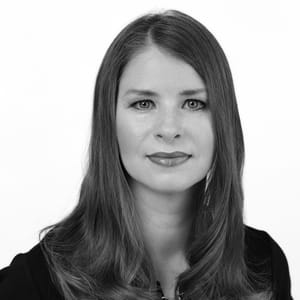
Senior Vice President, Education
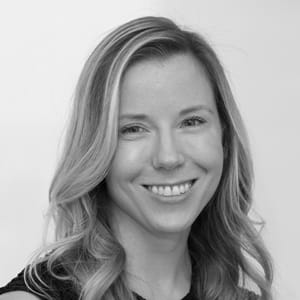
Senior Vice President, Awards and Scientific Programs
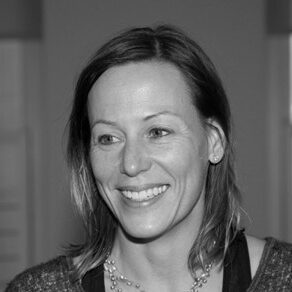
Associate Director, Fellowships
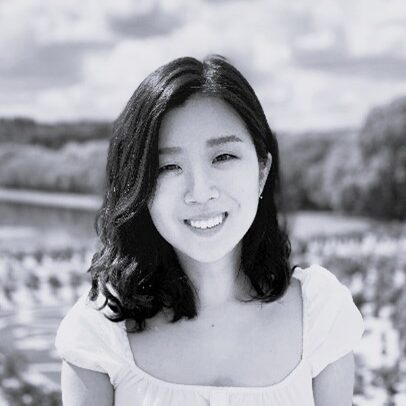
Program Manager, Awards
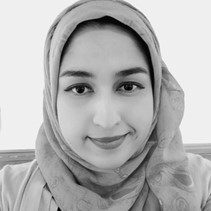
Program Manager, Education
Scientific Advisory Board

Princeton University

University of Pennsylvania

Harvard Medical School, Massachusetts General Hospital
2024 | 2023 | Alumni
2024 Cohort
Currently Under Review (in May it will be updated with the new Scholars)

